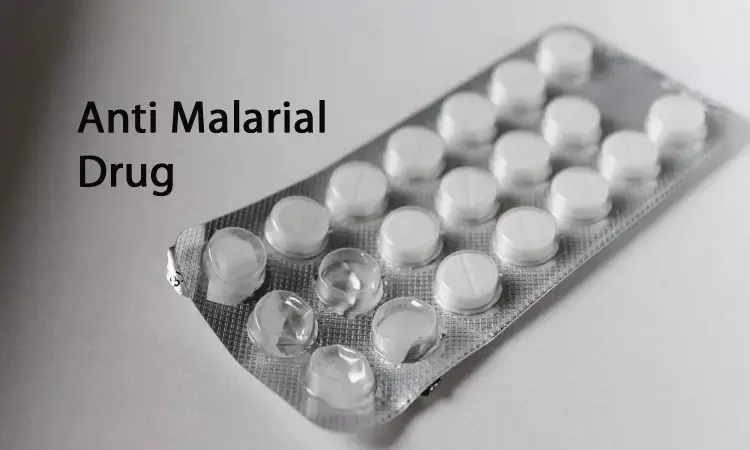- Home
- Medical news & Guidelines
- Anesthesiology
- Cardiology and CTVS
- Critical Care
- Dentistry
- Dermatology
- Diabetes and Endocrinology
- ENT
- Gastroenterology
- Medicine
- Nephrology
- Neurology
- Obstretics-Gynaecology
- Oncology
- Ophthalmology
- Orthopaedics
- Pediatrics-Neonatology
- Psychiatry
- Pulmonology
- Radiology
- Surgery
- Urology
- Laboratory Medicine
- Diet
- Nursing
- Paramedical
- Physiotherapy
- Health news
- Fact Check
- Bone Health Fact Check
- Brain Health Fact Check
- Cancer Related Fact Check
- Child Care Fact Check
- Dental and oral health fact check
- Diabetes and metabolic health fact check
- Diet and Nutrition Fact Check
- Eye and ENT Care Fact Check
- Fitness fact check
- Gut health fact check
- Heart health fact check
- Kidney health fact check
- Medical education fact check
- Men's health fact check
- Respiratory fact check
- Skin and hair care fact check
- Vaccine and Immunization fact check
- Women's health fact check
- AYUSH
- State News
- Andaman and Nicobar Islands
- Andhra Pradesh
- Arunachal Pradesh
- Assam
- Bihar
- Chandigarh
- Chattisgarh
- Dadra and Nagar Haveli
- Daman and Diu
- Delhi
- Goa
- Gujarat
- Haryana
- Himachal Pradesh
- Jammu & Kashmir
- Jharkhand
- Karnataka
- Kerala
- Ladakh
- Lakshadweep
- Madhya Pradesh
- Maharashtra
- Manipur
- Meghalaya
- Mizoram
- Nagaland
- Odisha
- Puducherry
- Punjab
- Rajasthan
- Sikkim
- Tamil Nadu
- Telangana
- Tripura
- Uttar Pradesh
- Uttrakhand
- West Bengal
- Medical Education
- Industry
Limited supply may scupper proposals to use antimalarials to ward off Covid-19

Restrict to healthy people at highest risk and those testing positive but still symptomless, suggest doctors.
In the desperate search to find effective treatments for coronavirus disease 2019 (COVID-19), chloroquine and HCQS, used largely by rheumatologists and dermatologists to treat immune-mediated diseases, have entered the spotlight. But it's limited supply and indiscriminate use may cause imbalance.
U.S. is facing shortages of antimalarial drugs being used experimentally to treat COVID-19 patients, according to the Food and Drug Administration (FDA).
Limited global supplies may scupper proposals to use the antimalarial drugs, chloroquine and hydroxychloroquine, to lessen the symptoms of Covid-19 infection or ward it off altogether, say Italian doctors in a letter published online today in the Annals of the Rheumatic Diseases.
The results of preliminary lab tests have prompted scientists to propose that these drugs be used to treat patients with pneumonia caused by Covid-19 infection. This approach has already been included in Chinese guidelines on how best to manage the disease.
Various studies over the past decade have shown that antimalarial drugs can lessen the impact of viral infections, including Covid-19. And clinical trials are now under way to see whether these drugs might help ward off the disease altogether.
Chloroquine and hydroxychloroquine have been used to treat autoimmune disease, including rheumatic diseases, since the 1940s, and have proved safe and well tolerated in most cases, say the authors.
Side effects are generally mild to moderate, with serious complications, such as retinal and cardiac damage, rare and related to cumulative doses over a long period of time.
There is an ethical issue, however, as there is as yet no hard evidence from clinical trials that these drugs can prevent the spread of Covid-19, they point out.
"Is it permissible to take a controlled risk in the event of a pandemic?" they ask. "In such a case: would it be reasonable to consider antimalarials as primary prophylaxis in healthy subjects living in highest risk regions or, at least, to use them in those testing positive for Covid-19, but still asymptomatic?"
The safety and effectiveness of these drugs makes them good candidates for mass preventive treatment programmes, they add, and scientists seem to be leaning towards adopting this approach.
But, conclude the authors: "If mass prophylaxis was accepted as an option worldwide, this would raise the question of whether there is enough supply of [chloroquine] and [hydroxychloroquine] to support this approach."
The European League Against Rheumatism (EULAR), which co-owns the Annals of the Rheumatic Diseases with BMJ, says that the use of these drugs to tackle Covid-19 could have serious implications for people with rheumatic diseases across Europe.
EULAR President, Professor Iain McInnes, says that global efforts to boost the evidence base for the use of these antimalarial drugs to treat Covid-19 are extremely welcome.
But he adds: "EULAR is concerned, however, that the diversion of drug supplies away from people with rheumatic and musculoskeletal diseases may compromise the health of this important and sizeable group of patients in Europe and beyond."
EULAR's patient membership group (PARE) is now calling on the manufacturers of these drugs to rapidly increase production to meet the projected surge in demand.
"A balanced approach that meets the imperatives of the ongoing pandemic, but which also takes account of the needs of patients already taking these drugs is essential," insists Professor McInnes.
For further reference log on to:
https://ard.bmj.com/lookup/doi/10.1136/annrheumdis-2020-217367
Dr Kamal Kant Kohli-MBBS, DTCD- a chest specialist with more than 30 years of practice and a flair for writing clinical articles, Dr Kamal Kant Kohli joined Medical Dialogues as a Chief Editor of Medical News. Besides writing articles, as an editor, he proofreads and verifies all the medical content published on Medical Dialogues including those coming from journals, studies,medical conferences,guidelines etc. Email: drkohli@medicaldialogues.in. Contact no. 011-43720751


